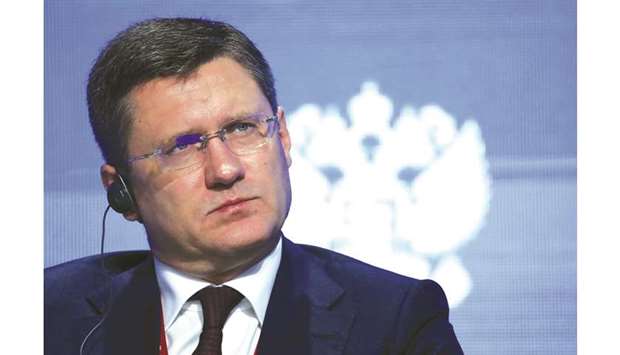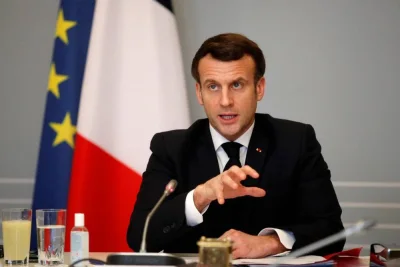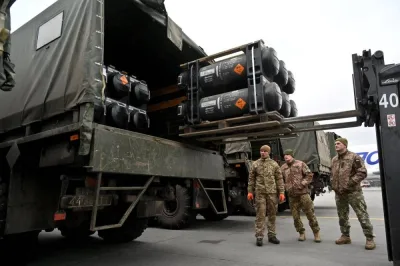Opec and its allies haven’t made any official proposals to change their production-cuts deal, according to Russia’s Energy Minister.
“We are living in line with the agreement signed on July 2,” Energy Minister Alexander Novak told reporters in the Russian resort of Sochi yesterday. Opec+ can always change the conditions of the output-cuts deal “but there have to be reasons for it, there has to be a solid outlook” to prompt a change of course, he said.
Novak was responding to questions about a Reuters report, quoting unnamed Opec+ sources, that the group may discuss deeper cuts at its December meeting amid concerns about weak oil demand growth in 2020.
Russia’s second-largest oil producer Lukoil PJSC also supports a “wait-and-see” attitude towards any potential changes in the Opec+ agreement, according to Interfax. “I would not do anything now,” Lukoil chief executive officer Vagit Alekperov said in Sochi, as cited by Interfax. “I support keeping everything stable until April, when the deal expires, and taking a decision after the winter season ends.”
Unlike most of its allies in the Arabian Gulf, Africa and Latin America that need oil prices at least above $65 per barrel, Russia can withstand prices falling as low as $40 per barrel thanks to low costs at the wellhead, the flexible rouble, budget rules and a healthy sovereign wealth fund.
As a result, energy officials and producers in Moscow have traditionally voiced at least a cautious stance on extending Opec+ production cuts. The nation’s largest oil producer Rosneft PJSC on numerous occasions said cooperation with the Organization of Petroleum Exporting Countries may reduce Russia’s global oil market share amid expanding US shale production.
Opec and its allies have agreed to cut their output by 1.2mn barrels a day and keep the reductions in place until April 2020. The actual cuts made by member countries have consistently been deeper than that target.
In September, Opec cut almost three times deeper than its target, according to Bloomberg calculations, after drone and missile attacks damaged Saudi Arabian energy infrastructure. The group’s allies implemented 122% of their agreed reductions, in part due to field maintenance in Kazakhstan, calculations from revised International Energy Agency figures show.
Even with the additional cuts, analysts from Morgan Stanley to Commerzbank AG are calling for the group to go deeper at the December meeting to prevent inventory buildups in 2020. Opec secretary-general Mohammad Barkindo said earlier in October that the group will do “whatever it takes” to stabilise the market next year, with “all options on the table.”

u201cWe are living in line with the agreement signed on July 2,u201d Energy Minister Alexander Novak told reporters yesterday. Opec+ can always change the conditions of the output-cuts deal u201cbut there have to be reasons for it, there has to be a solid outlooku201d to prompt a change of course, he said.


